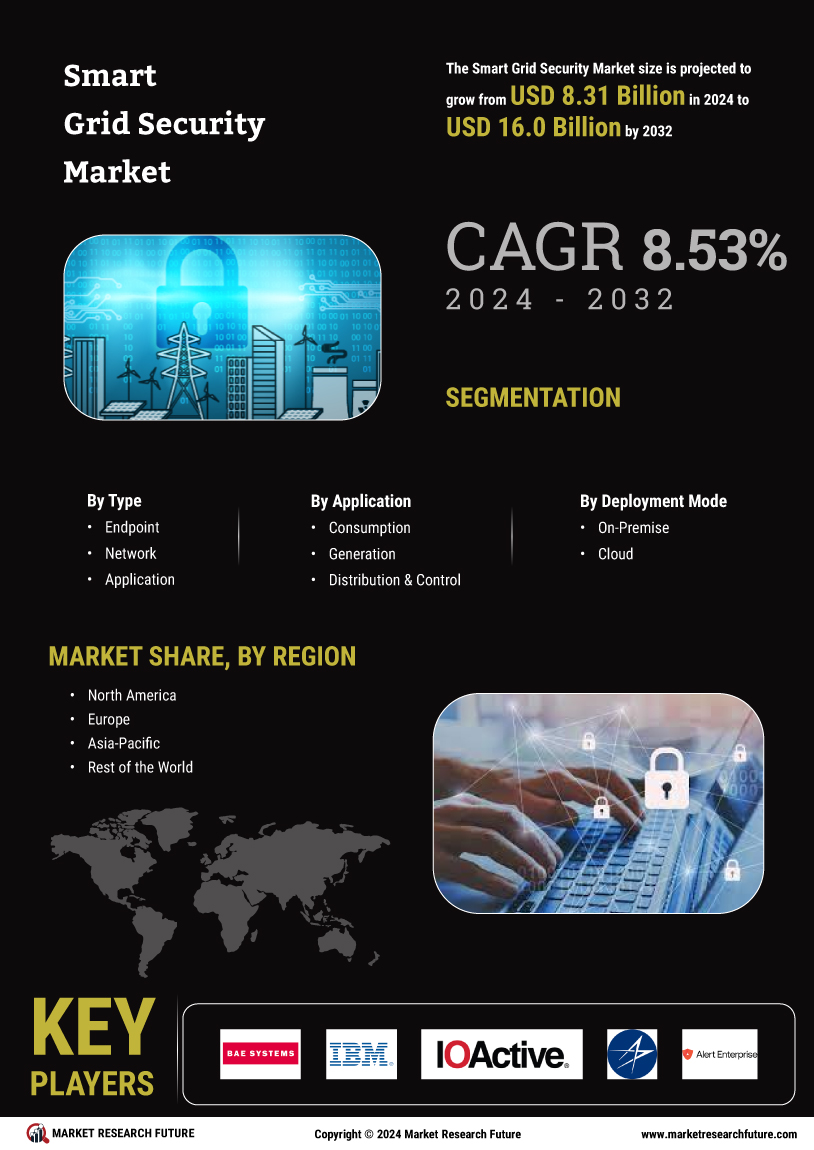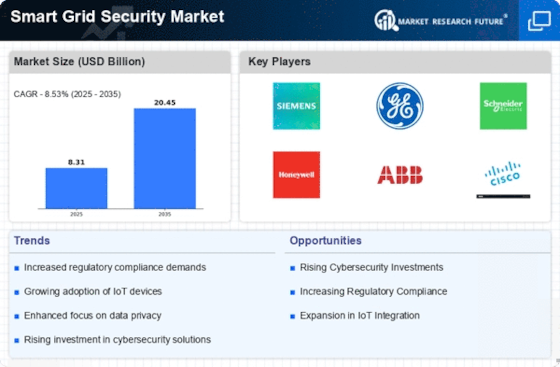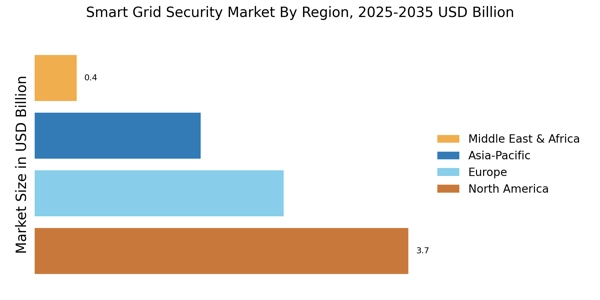Rising Cyber Threats
The Smart Grid Security Market is experiencing heightened demand due to the increasing frequency and sophistication of cyber threats. As energy infrastructure becomes more interconnected, vulnerabilities are exposed, prompting utilities to invest in advanced security measures. Reports indicate that cyberattacks on critical infrastructure have surged, with energy sectors being prime targets. This trend necessitates robust security solutions to protect sensitive data and ensure operational continuity. The market is projected to grow significantly as organizations prioritize cybersecurity to mitigate risks associated with potential breaches. The urgency to safeguard against these threats is driving innovation and investment in smart grid security technologies.
Adoption of IoT Devices
The proliferation of Internet of Things (IoT) devices is significantly influencing the Smart Grid Security Market. As utilities adopt IoT technologies for monitoring and managing energy consumption, the need for robust security measures becomes paramount. IoT devices, while enhancing operational efficiency, also introduce new vulnerabilities that can be exploited by malicious actors. Consequently, the market is witnessing a surge in demand for security solutions tailored to protect these devices and the data they generate. Analysts suggest that the integration of IoT in smart grids could lead to a market expansion, as organizations seek to secure their networks against potential threats.
Government Initiatives and Funding
Government initiatives play a pivotal role in shaping the Smart Grid Security Market. Various governments are implementing policies and providing funding to enhance the security of energy infrastructure. For instance, initiatives aimed at modernizing the grid often include provisions for cybersecurity enhancements. In recent years, funding allocations for smart grid projects have increased, with a focus on integrating security measures. This financial support encourages the adoption of advanced security technologies, fostering a more resilient energy sector. As governments recognize the importance of secure energy systems, the market is likely to witness sustained growth driven by these initiatives.
Increased Awareness of Energy Security
There is a growing awareness of the importance of energy security within the Smart Grid Security Market. Stakeholders, including consumers and businesses, are increasingly recognizing the potential risks associated with energy supply disruptions. This awareness is driving demand for security solutions that ensure the reliability and integrity of energy systems. As public concern over energy security rises, utilities are compelled to invest in advanced security measures to maintain consumer trust and operational stability. The market is likely to benefit from this heightened awareness, as organizations prioritize investments in security technologies to safeguard their energy infrastructure.
Technological Advancements in Security Solutions
Technological advancements are a key driver of growth in the Smart Grid Security Market. Innovations in security technologies, such as artificial intelligence and machine learning, are enhancing the ability to detect and respond to threats in real-time. These advancements enable utilities to implement proactive security measures, reducing the likelihood of successful cyberattacks. The market is witnessing the emergence of sophisticated security solutions that leverage these technologies to provide comprehensive protection for smart grid systems. As utilities seek to stay ahead of evolving threats, the demand for cutting-edge security solutions is expected to rise, further propelling market growth.

















